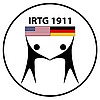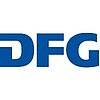B7 (2013 - 2016) – Pathogen-derived lipid mediators in Mtb
Arachidonic acid (AA) metabolites are important modulators of inflammation either during induction, maintenance or resolution. They include the classic eicosanoids, leukotrienes (LT), prostaglandins (PG), as well as lipoxins (LX), resolvins (Rv), maresins (MaR) and protectins (PD) generated from omega-3 poly-unsaturated fatty acids (PUFA). These lipid molecules are generated by cyclooxygenase (COX) and PG synthase and several lipoxygenase (LOX), peroxidase and epoxide hydrolase activities in a sequentially controlled manner. By binding specific receptors, these lipid mediators regulate inflammation by controlling cellular migration as well as pro-inflammatory mediator synthesis. Rv are involved in reducing neutrophil influx and can enhance antibiotic efficacy. During Mtb infection, induced lipid mediators act in a locally restricted manner within the infected tissue. Mtb infection has profound effects on host lipid metabolism, but the Mtb glycolipid profile also changes upon infection of macrophages suggesting a strong impact of host and bacterial lipid metabolism on the inflammation process including pro- and anti-inflammatory lipid mediators. In this line, the Aliberti lab has shown that lipoxin generation during infection enhances host susceptibility to Mtb. Furthermore, anti-TB drugs affect AA metabolism including up-regulation of LOX activity. The Schaible lab identified Mtb glycolipid determinants important for deviating host cell membrane trafficking and inflammation, which are carried endosomal lipid transfer proteins of the host and shuttled via apoptotic vesicles to non-infected cells. Neutrophils represent the predominant cell population in active TB patient lesions. We found that pro-inflammatory cytokine dysregulation promotes neutrophil-dominated tissue responses. Neutrophils however, are unable to control Mtb growth but provide excessive necrotic cell-derived membrane deposits.
Aims:
- Determine the lipid profiles of Mtb-infected myeloid cells and their modulation of pro-inflammatory responses.
- Determine the effects of LOX and LPLA2 deletions on lipid profiles as well as pro-inflammatory responses in Mtb-infected myeloid cell cultures.
- Investigate how anti-TB drugs affect lipid mediator synthesis and inflammatory responses.
- Determine lung tissue lipid mediator profiles upon Mtb infection in WT, LOX and LPLA2-deficient mice.






